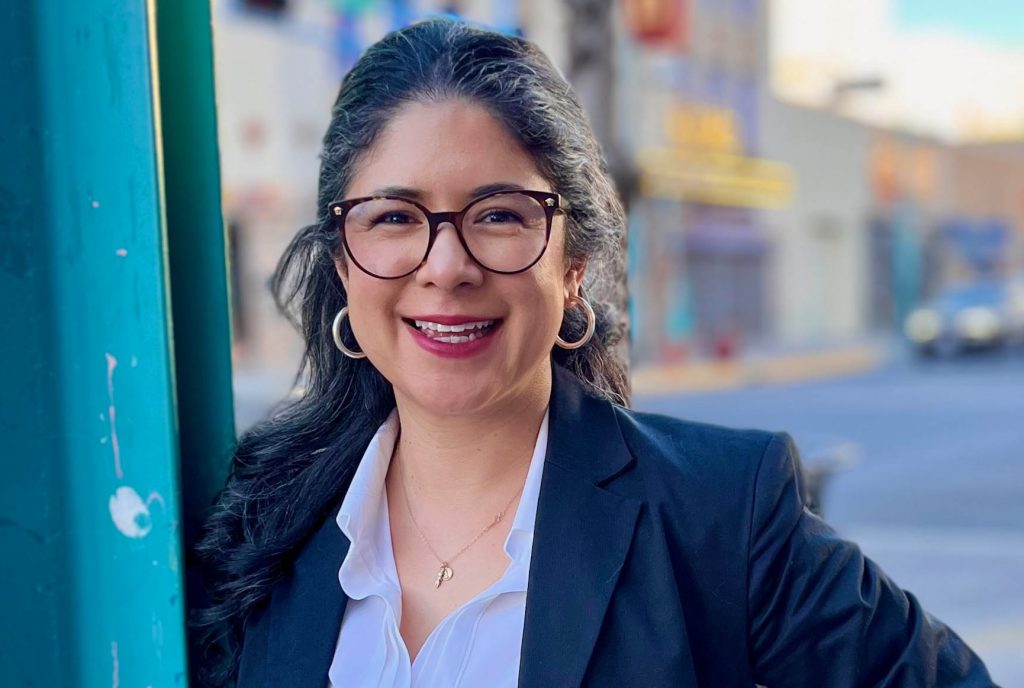The bill to protect abortion and gender-affirming providers and patients from out-of-state entities passed the state Senate by a 26-6 vote.
SB 13, would codify Gov. Michelle Lujan Grisham’s executive order from last summer. The bill would protect both providers and patients seeking abortion care and gender-affirming healthcare from other states or individuals out of state who try to seek information about the patient or provider.
State Sen. Antoinette Sedillo Lopez, D-Albuquerque, also a bill sponsor, said the bill will “ensure no one is criminalized for safe and legal healthcare.”
“It privileges certain healthcare information so patients and providers can go without fear of out-of-state criminal or civil liability,” she said.
Related: First of two abortion right bills heads to Guv’s desk
Republicans argued that the bill is not constitutional, that it conflicts with both the U.S. Constitution and with the state’s constitution.
State Sen. David Gallegos, asked Sedillo Lopez, who is a retired law professor from the University of New Mexico, to explain what the bill does to federal code regarding fugitives from one state that travel to another one.
Sedillo Lopez said there is a legal principle called “comity” that regards respecting other states’ jurisdictions and laws so that each state recognizes other states’ driver licenses, divorce decrees and marriages.
Sedillo Lopez said the bill was drafted “very carefully to deal with the issue of comity.”
State Sen. Gregg Schmedes, R-Tijeras, said the bill is unconstitutional and would lead to litigation.
Schmedes also argued that the bill would lead to a “national divorce.”
State Sen. Greg Baca, R-Belen, said it would “isolate us from our fellow neighbors.”
State Sen. Brenda McKenna, D-Albuquerque, said some states have created punishments that include up to 99 years in prison, $100,000 fine, loss of license to practice if an abortion provider provides an abortion to their patients.
“SB 13 is about protecting providers, allowing them to work,” she said.
State Sen. Nancy Rodriguez, D-Santa Fe, said the discussion against the bill “stifles my ability as a woman to make my own critical decisions…I see these as personal attacks to my innermost being to my body.”
“All I ask, I don’t think it’s too much to ask that we be left alone with these capacities; we have to make our own critical decisions when it comes to reproductive healthcare,” she said.
Gallegos said he has encountered talk about a referendum effort on the Reproductive and Gender-Affirming Healthcare bill that prohibits public bodies from discriminating against individuals seeking reproductive or gender-affirming healthcare.
For the most part, a referendum is the equivalent to a constitutional amendment in New Mexico, which would have to pass the Legislature.
Voters can pursue a veto referendum, but the process is onerous. To place a veto referendum in the following general election, the voters seeking it must collect petitions from 10 percent of the total number of votes cast in the previous general election. To suspend the law until the election, voters behind the referendum would need 25 percent of the number of votes cast in the previous general election, according to Ballotpedia.com.
New Mexico has only had three veto referendums make the ballot, the most recent in 1964. The only one to succeed was in 1930, per Ballotpedia.
State Sen. Bill Sharer, R-Farmington, tried to amend the bill to strike the word “perinatal,” claiming that the word allowed for babies to be killed after birth.
Lopez said the bill was unfriendly and several members of the Senate rose to combat Sharer’s claim. Sedillo Lopez called it “false and misleading” and that it referred to perinatal care.
State Sen. Siah Correa Hemphill, D-Silver City, called it “dangerous for women” to make such a claim.
State Sen. Katy Duhigg, D-Albuquerque, said “we are not about to leave a child to die.”
“Abortion after birth is not a thing,” she said.
Duhigg explained that perinatal is obstetric care in the weeks leading up to the birth and a few weeks after the birth to ensure a healthy pregnancy and birth.
Sharer’s amendment failed 26-13.
The bill heads next to the House.


















